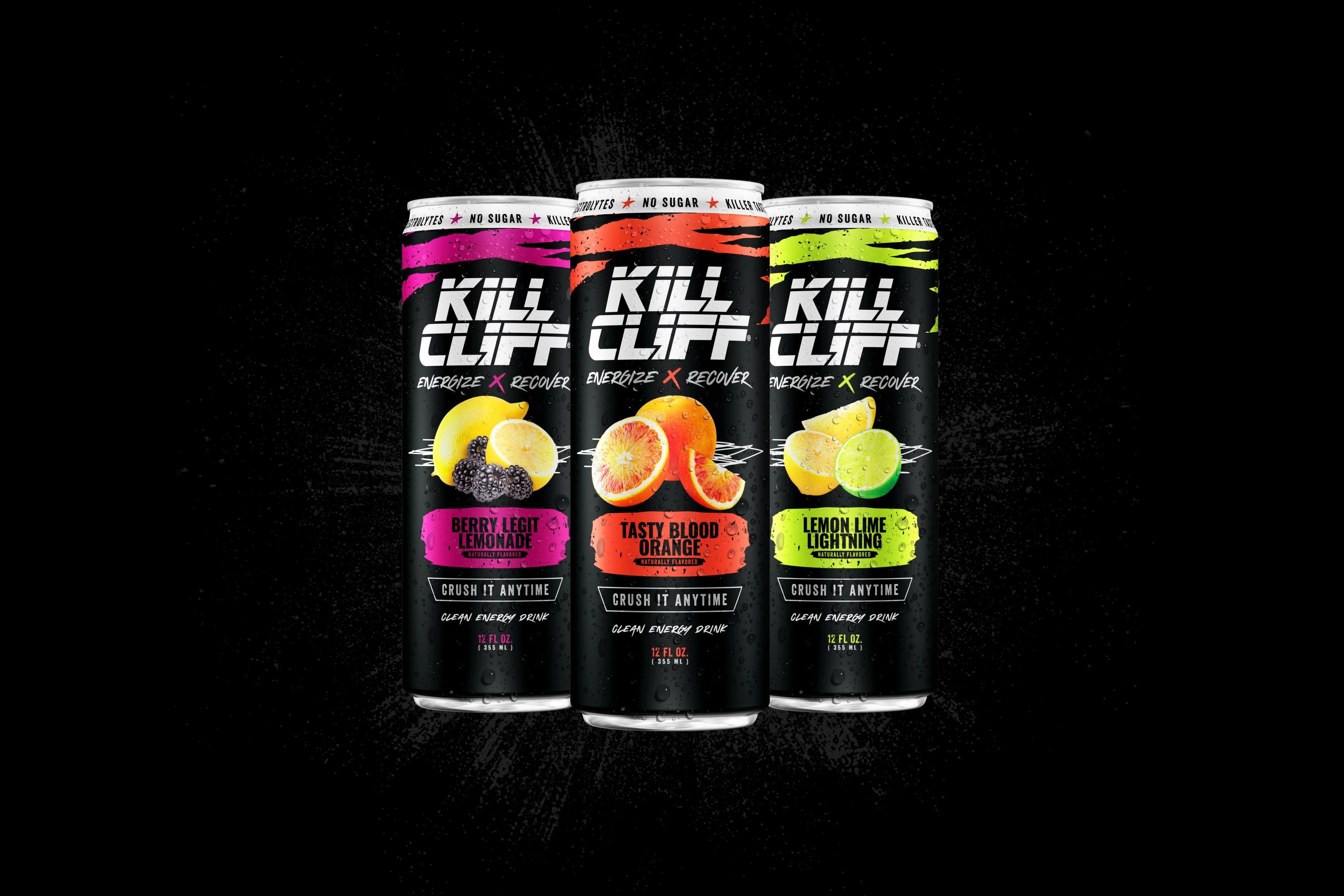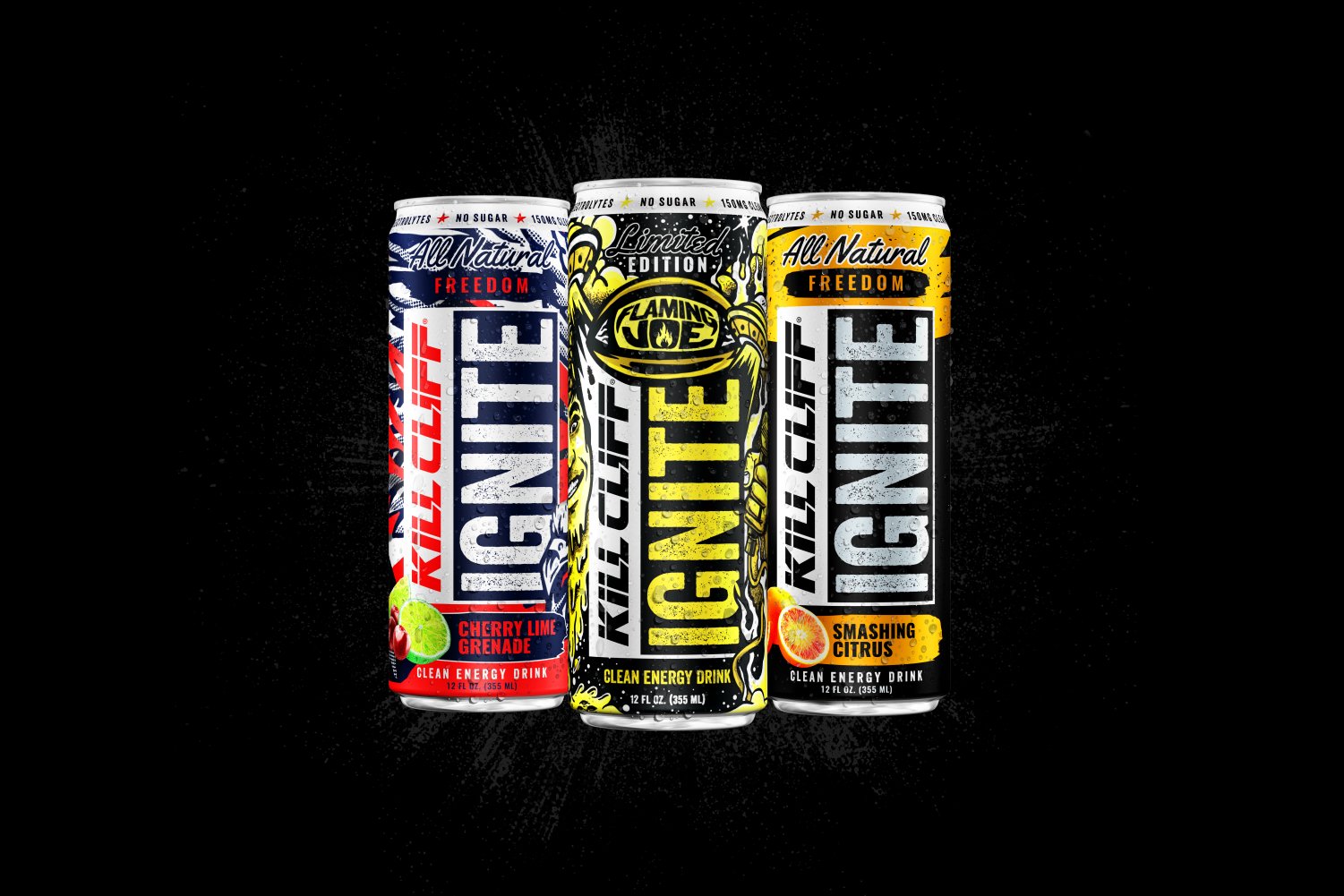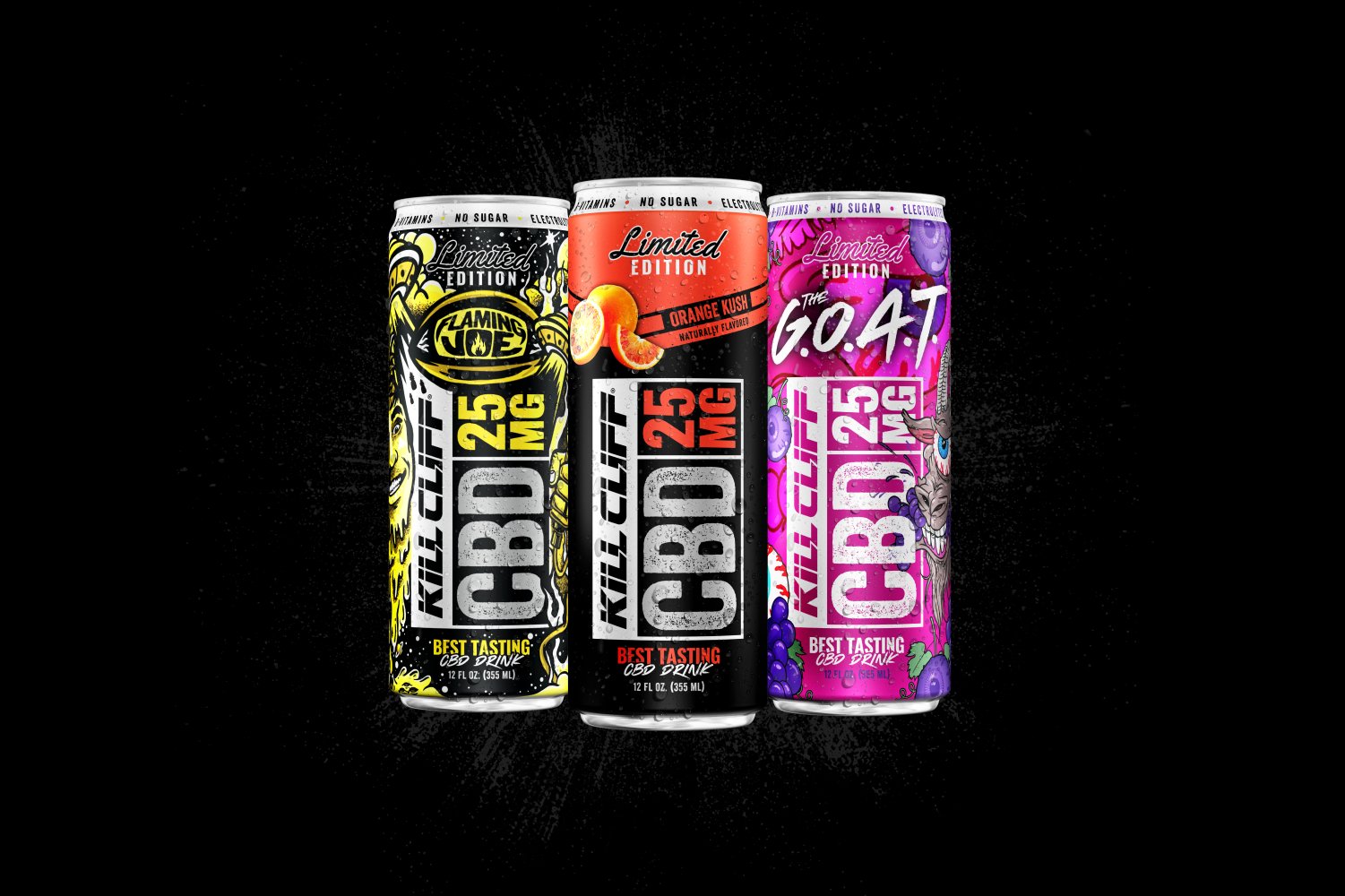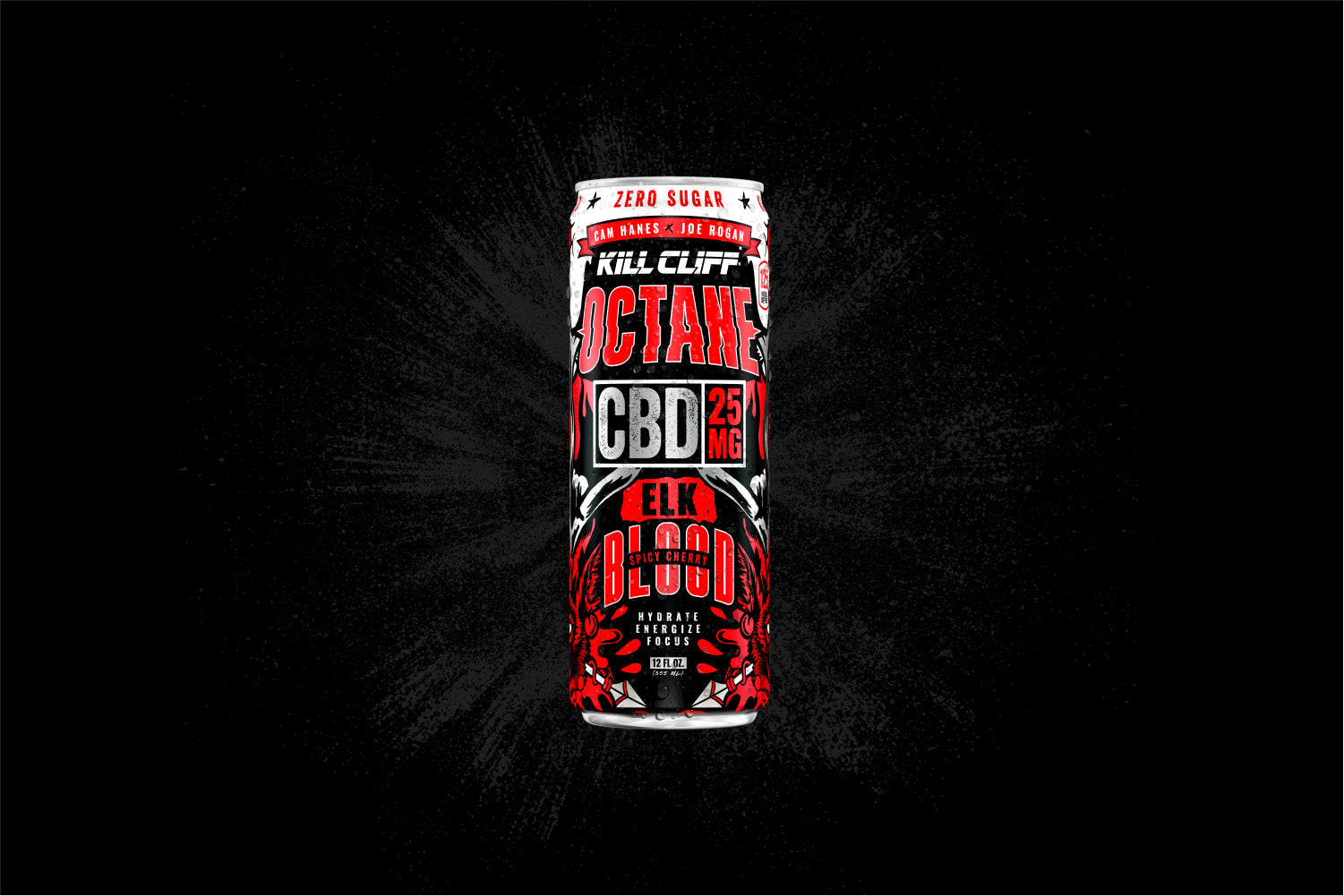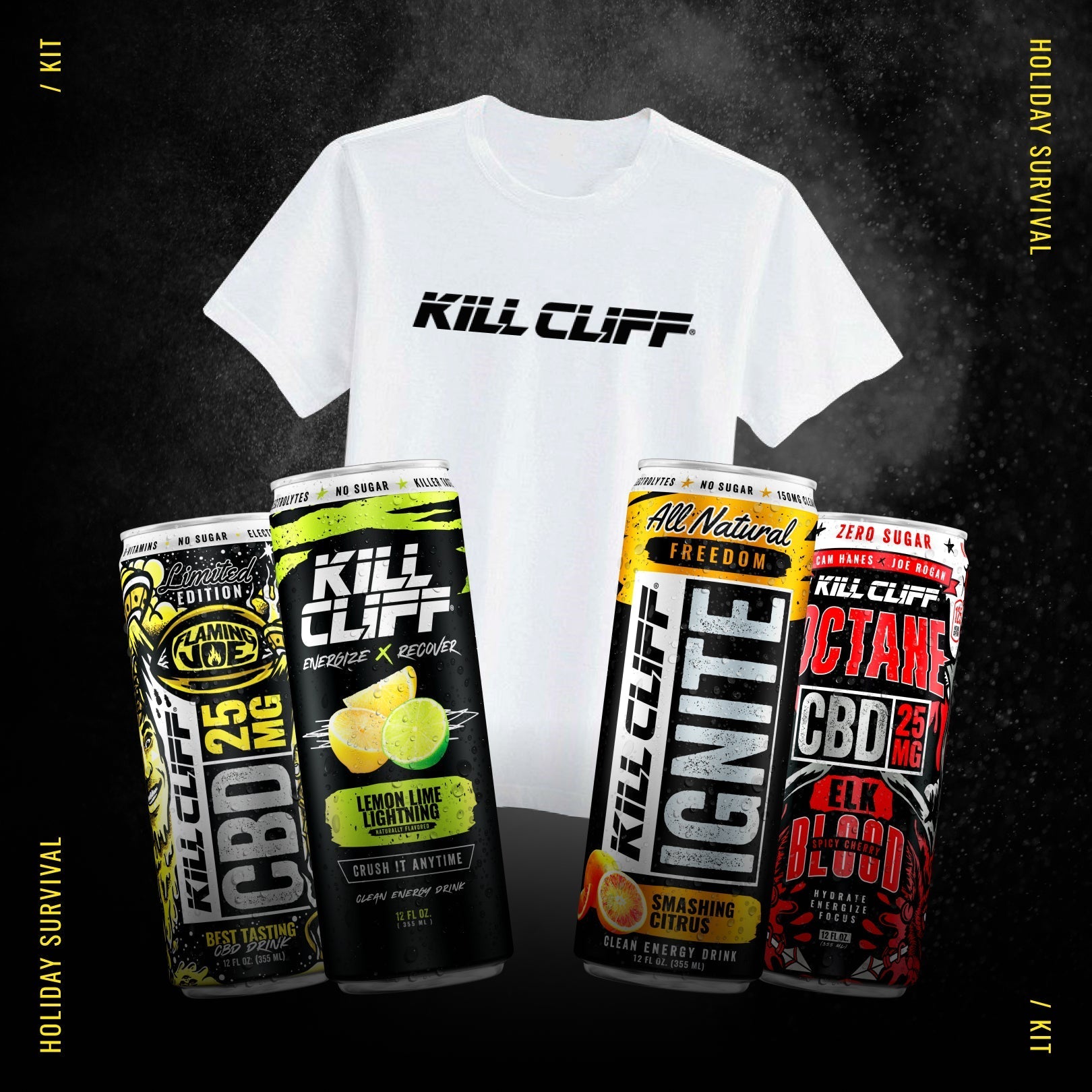
Energy drinks are everywhere. They are one of the fastest-growing beverage categories and have become an everyday product for many. Whether you need it to wake up in the morning, carry you through a long day or a late night, or help you amp up before a workout, the jolt of an energy drink is unmistakable and puts some well-needed fuel in the tank. BUT, What is the best energy drink?
With millions consuming energy drinks, there is a growing concern about the health impact of these products. Some question if the energy boost is worth the potential health risk. Luckily, the rise of functional beverages has led to the emergence of healthier alternatives to the status quo.
In this blog, we're going to break down the pros and cons of energy drinks and introduce you to a healthy energy drink that will give you the same kick, but its ingredients won't leave you feeling guilty.
How do energy drinks work?
The two main ingredients in energy drinks are sugar and caffeine - you know, the things that give you energy.
Caffeine has the benefit of increasing stamina and boosting your athletic performance. With energy drinks ranging from 40-250 mg of caffeine per 8 fluid ounces, these things can really get you going. For the sake of comparison, one 5 oz cup of coffee generally has about 100 mg of caffeine.
When sugars are digested, they breakdown into simple sugars and travel through the bloodstream into blood cells. Though sugar gives you energy, it's no secret how bad sugar can be for you. Many energy drinks have a ridiculously high amount of sugar. For example, a 16 oz can of Rockstar has an astounding 60 grams of sugar, according to its nutrition facts label. That's nearly 12 teaspoons, OR the equivalent of eating 6 Krispy Kreme doughnuts...in one sitting!!!
Are energy drinks safe?
It's important to note that many energy drinks are not regulated by the U.S. Food and Drug Administration (FDA), meaning there is no one regulating what ingredients are being put into their drinks.
Due to caffeine's powerful effect, you need to be aware of how much your body can handle. The FDA recommends only consuming up to 400 mg of caffeine a day (this is the upper limit before the possibilities of negative effects emerge). However, that caffeine sensitivity varies and everyone metabolizes it differently. Your limits can vary vastly from the upper limit of the FDA.
In addition to the possible negative effects of caffeine, energy drinks have been linked to heart and neurological issues. There were more than 20,000 emergency room visits that involved the consumption of energy drinks from 2007 to 2011. Heavy consumption of energy drinks can lead to an increase in blood pressure, heart rate, kidney issues, and even reduce blood supply to the brain.
Synthetically produced caffeine from Chinese pharmaceutical plants is the most popular caffeine source in soft drinks and energy drinks. Synthetic caffeine is quickly absorbed into your body, giving you the energy you crave faster than that of a naturally sourced caffeine. However, synthetic caffeine will lead to a much quicker crash. Alternatively, a naturally sourced caffeine will provide for longer, sustained energy.
What it boils down to is being aware of what exactly you are consuming. If you consume energy drinks regularly, it would be smart to pick an energy drink that exclusively uses FDA-regulated ingredients. Consuming these drinks in moderation is safe, but over-consumption can lead to some of the issues above.
Are there harmful ingredients in energy drinks?
Taurine, an amino acid, is a common ingredient in many popular energy drinks, including Red Bull, Monster, and Rockstar. In moderation, taurine can be beneficial as it supports neurological development and regulates water and mineral levels in blood. However, the combination of taurine and the other ingredients in popular energy drinks can become harmful. Excessive levels of taurine can lead to severely low blood pressure. The long term effects of taurine have yet to be discovered.
Ginseng, Gingko Biloba, and Guarana are safe when consumed individually, but when mixed with common energy drink ingredients such as caffeine and sugar, they can become dangerous. Together, they can lead to side effects such as high blood pressure, heart palpitations, headaches, fatigue, insomnia, swelling, dehydration, and kidney failure.
Are there artificial sugars in energy drinks?
Yes, and you should be aware of what types of sugars you are consuming. Energy drinks are filled with sugar to provide you with additional energy and to mask the terrible bitter taste of caffeine. Though you might appreciate the energy and sweet flavor, you won't appreciate what the excessive sugars will do to your body.
This isn't breaking news, though. Most everyone is well aware of the dangers of high sugar consumption. Many have made the switch to sugar-free energy drinks in hopes of consuming a healthier beverage. In theory, this is not a horrible idea, but, sugar-free energy drinks are filled with artificial sweeteners such as sucralose, aspartame, and acesulfame potassium (Ace-K). While these have all been deemed safe by the FDA, there have not been enough tests to determine long-term effects.
Sucralose, otherwise known as Splenda, is a popular artificial sweetener found in the sugar-free versions of Rockstar, Bang, and Monster. Despite being around since the 1990s, there has not been a ton of human research done on the effects of sucralose. There have been sucralose studies conducted on rats showing damage to gut bacteria. There have also been studies linking sucralose to a higher risk of cancer with the rats. Sucralose doesn't sound so great, and given that it is created in a lab...why drink it if you don't have to?
Like sucralose, Ace-K is a calorie-free sweetener used in many diet products, including sugar-free versions of Red Bull, Rockstar, Bang, and Monster. Similar to sucralose, Ace-K has been tested against mice. The research showed that Ace-K has been linked to cancer, thyroid issues, and changes in brain function.
Last, but not least, aspartame is another popular artificial sweetener that is found in sugar-free Red Bull. Components of aspartame have been proven to block the production of a gut enzyme called alkaline phosphatase; this is an important enzyme in preventing obesity, diabetes, and metabolic syndrome. When tested on mice, aspartame also led to higher blood sugar levels.
This all sounds pretty terrible, so how about a naturally sweetened energy drink? Does it exist?

Is there a healthy energy drink?
Yes! Here at Kill Cliff, we love a good energy drink, but we're aware of the possible dangers of the many unnatural ingredients that many popular energy drinks contain. We wanted an energy drink with a strong caffeine buzz coming from a natural source, with no artificial sweeteners.....so we made one.
KILL CLIFF Ignite is a sugar-free, naturally sweetened energy drink that delivers the jolt you crave with 150 mg of naturally-sourced green tea caffeine (about a cup and a half of coffee). Additionally, KILL CLIFF Ignite includes only FDA-regulated ingredients in its specialized blend of B-vitamins and electrolytes. It provides you with 10% of your daily values of magnesium and potassium, which helps regulate hydration and blood flow.
So, whether you want sustained clean energy to help you through your day, or you want a natural alternative pre-workout drink...or you want to get fired up for a long night of playing Call of Duty and Red Dead Redemption, KILL CLIFF Ignite is your go-to option! Check it out!
